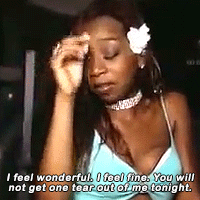What do you think?
Rate this book


242 pages, Kindle Edition
First published September 25, 2001
"One is mislead when one looks at the sails and majesty of tall ships instead of their cargo."Essays, ruminations, and meditations on finding something you know you can never find, because you never lost it, because you never had it, because it was taken from you before you were born. Personal, philosophical, poetic, political. This book has some of the most beautiful and deep prose I've read this year, and probably ever, and I love love loved every word of it. I've been wanting to write a review of it for months now, unable to find the sufficient words. I love it in a strange way that thrills and ails me, in a way that only great literature does: it both overjoys me to read and discover something so true and beautiful, and profoundly saddens me by revealing that truth.
"a place, real, imaginary and imagined. As islands and dark continents are. It is a place which exists or existed. The door out of which Africans were captured, loaded onto ships heading for the New World. It was the door of a million exits multiplied. It is a door many of us wish never existed. It is a door which makes the word door impossible and dangerous, cunning and disagreeable.”I found myself slowing down, savoring every word, sometimes reading paragraphs out loud, sometimes re-reading paragraphs many times. It's a prose that I read breathlessly in excitement, then in despair, then again to take long breaks staring out the window in between paragraphs thinking about what I just read.


"To have one's belonging lodged in a metaphor is voluptuous intrigue; to inhabit a trope; to be a kind of fiction. To live in the Black Diaspora I think is to live in a fiction—a creation of empires, and also self-creation. It is to be being living inside and outside herself. It is to apprehend the the sign one makes yet to be unable to escape it except in radiant moments of ordinariness made like art. To be a fiction in search of its most resonant metaphor then is even more intriguing."